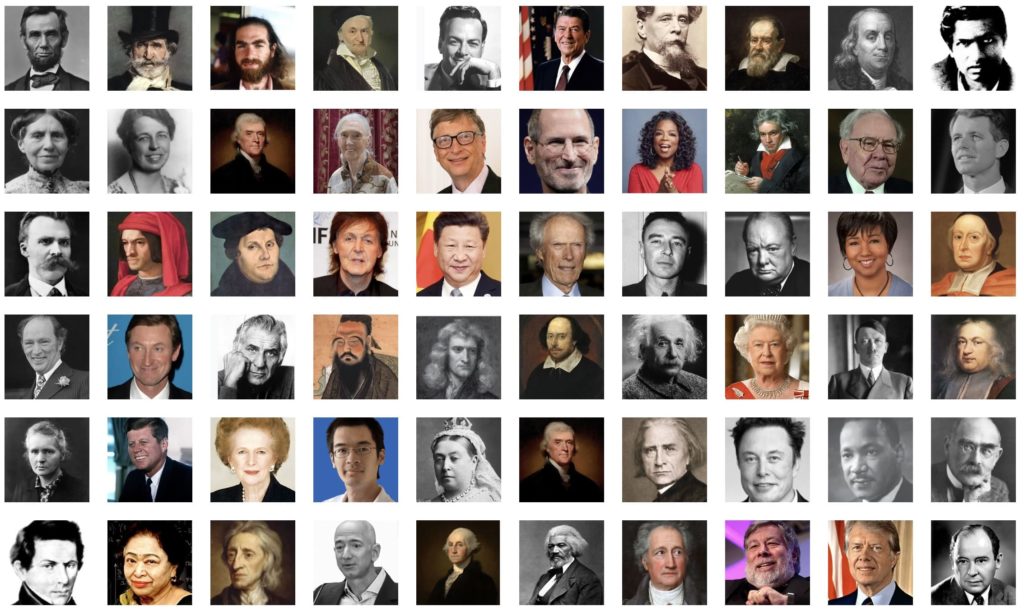
Traits like high IQ, charisma and charm are all attributes that can help a person achieve their goals. Of course, the importance of each quality depends upon the field in which success is sought. In politics, charism and charm play an essential role in how a person is perceived. A candidate for election who is of extremely high IQ, but is perceived to be a “nerd,” a cold personality, or lacking in compassion, will have a difficult time competing against a candidate who radiates warmth and integrity. In some cases, having a high IQ can be detrimental to a candidate for election, because it becomes more difficult for the average person to relate to them at a visceral level. Of course, a person who can combine charisma and charm with a high IQ, as in the case of John F. Kennedy, will do well in politics.
In sports that don’t involve strategy and rely mainly on skill, a high IQ offers little or no advantage, compared to athletic ability, perseverance, passion and tenacity. Charisma can help generate popularity, as in the case of Tiger Woods and Arnold Palmer in golf, or Michael Jordan in basketball, but the skill must come first, before charisma evolves. Similarly, in the field of entertainment, a skill in acting or music generates a persona that paves the way for a chain of successes. Many Hollywood celebrities who are charismatic, show themselves to have average to low IQ when they go off script. This suggests that a high IQ is probably not a significant factor in becoming a celebrity in the entertainment field. In general, in fields such as politics, and entertainment that are highly social, interpersonal skills, charisma and charm are vital assets, while having an IQ above 120 offers little advantage.
Some fields in which a high IQ is a vital assert are: academe, investment fund management, corporate management, software development, entrepreneurship and professions such as law and medicine. The highest achievers in these areas typically have high or very high intelligence. In 1993, Forbes journalist Richard Karlgaard, in a conversation with Bill Gates asked, “What Microsoft competitor worries you most?” Without hesitation, Gates responded, “Goldman Sachs.” When Karlgaard responded with surprise that Gates named an investment banking company rather than a computer company, Gates clarified:
Software is an IQ business. Microsoft must win the IQ war, or we won’t have a future. I don’t worry about Lotus or IBM, because the smartest guys would rather come to work for Microsoft. Our competitors for IQ are investment banks such as Goldman Sachs and Morgan Stanley.
The information age has ushered in a new era that places a high premium on intellectual performance of the kind measured by IQ. Brains may not be a sufficient condition for employment at the highest levels, but they are a necessary condition. In Coming Apart: The State of White America 1960–2010, Charles Murray states:
Over the last century, brains became much more valuable in the marketplace. … What was someone with exceptional mathematical ability worth on the job market a hundred years ago if he did not have inter-personal skills or common sense? Not much. … What is a person with the same skill set worth today? If he is a wizard programmer, as people with exceptional mathematical ability tend to be, he is worth six figures to Microsoft or Google. If he is a fine pure mathematician, some quant funds can realistically offer him the prospect of great wealth.
Murray further explained that, not only mathematicians, but corporate managers with higher cognitive abilities and the potential to increase productivity or market share by a few percent, can earn for a company huge multiples of their own salaries, and this “makes brains worth more in the marketplace.” For those without IQs in the stratosphere, there are still many opportunities for interesting and high- paying careers, but the key to a person’s success is their ability to match their personal attributes to a career in which those attributes are an asset.
